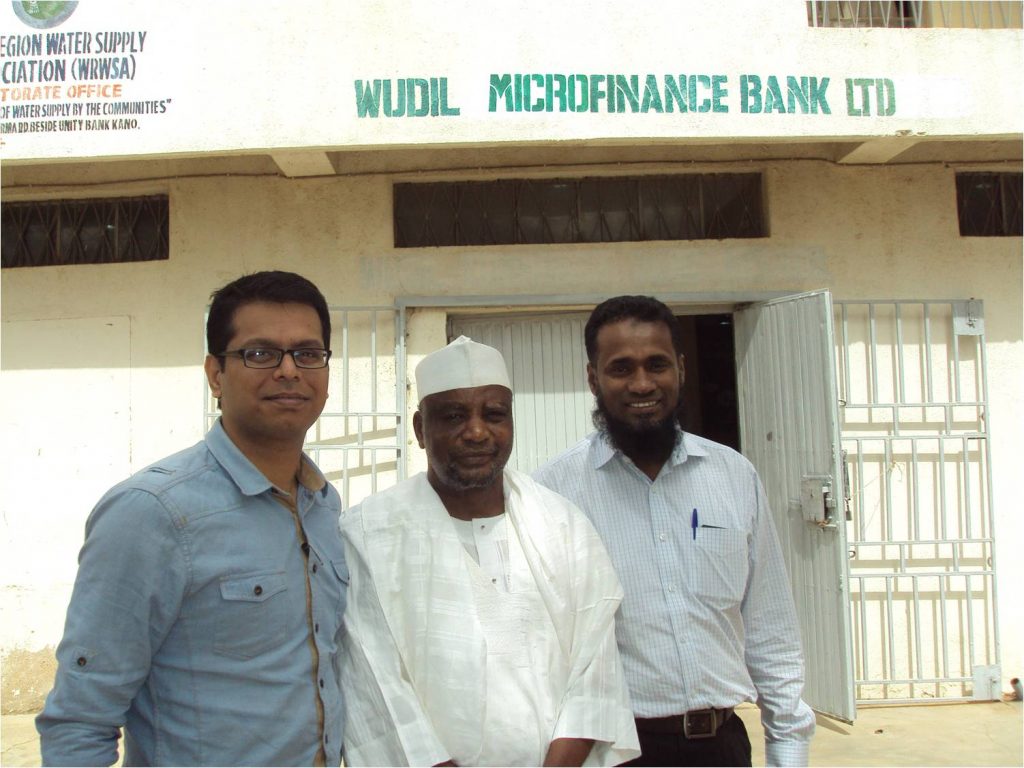How does one sum up half a lifetime of work to promote financial inclusion for the poor? A career that spans over 24 years, starting from introducing microfinance at the grassroots to being the digital innovation lead in a multinational microfinance provider, to initiating microfinance in a new, and at times, frightening country – Mr ShahidUllah’s story depicts an adventure seeker with unrelenting willpower to achieve his mission.
“I joined BRAC in the year 1993. I was a fresh graduate and started working in a large garment conglomerate. But I was bored after a few months with the routine work and when I saw a job circular advertising a Program Officer position at BRAC I applied instinctively, without even knowing anything about my role and future. Everyone discouraged it but I persisted”, Mr ShahidUllah’s simple confession. And this humble persistence is evident throughout his career at BRAC.
ShahidUllah was commissioned to the field and tasked with the responsibility to bring a new community under the benefit of financial services. Together with his team, he went door to door, developed groups of women borrowers, determined participant selection criteria and oriented the participants of BRAC on how to use microfinance. He became the manager of that branch within a year and steadily ascended to becomea Regional Coordinator of the Microfinance program by 1999. Apart from supervising staff and maintaining a growing portfolio of borrowers and savers, ShahidUllah also monitored activities of other BRAC programs in that region. In 2003, he was selected to help BRAC set up its first international venture – a microfinance programme in Afghanistan.
“When I went to Afghanistan in 2003, the country was still trying to rise from the devastation of decades of war. There wasa very limited formal banking system, very limited infrastructure, the concept of microfinance was new, and so we faced a lot of challenges. The most difficult part was to educate the local managers and employees who would become frontline staff about their duties.They had suffered years of trauma and had very limited work experience and management skills. We had to provide constant training and motivation to the staff. ShahidUllah soon took over management of the branches within his province – setting yearly targets, budgeting, cost management, headquarter coordination as well as maintaining liaison with the external stakeholders such as the district government representatives. The results were promising but his stay in Afghanistan was short-lived due to an unexpected incident.
“It was the end of the month and I was out to disburse staff salaries on my motorbike. I was driving through the rough terrain, coming back from the farthest branch, when I suddenly lost control and fell. I was so surprised by the incident that I could not properly register what went wrong. I rolled down from the road and landed on the dirt a few meters below. I looked around, perplexed, trying to figure out what happened, when I noticed a man carrying a rifle slowly walking towards me from the other side of the road. I instantly closed my eyes and awaited my fate. After a while, I felt him removing the bag from my shoulders and then he left. Slowly, I came to my senses and attempted to move towards my bike. But I was met with excruciating pain. It was then when I realised that I was shot in my right hand and leg. I somehow crawled towards my bike and waited for a passerby. Luckily, a police patrol arrived a few minutes later and they took me to the nearest hospital. I was lucky that my wounds were not fatal. With the timely assistance from the head office and my colleagues in Afghanistan, I was released after a few days and returned to Bangladesh”.
After two years of an eventful stay in Afghanistan, in 2006 ShahidUllah returned to Dhaka. Within a couple of yearshe had a new mission: introduce digital financial services to Bangladesh. ShahidUllah was an integral part of the team who piloted and helped scaleup bKkash – BRAC Bank’s mobile money platform, before it revolutionised how the the country conducted financial transactions, and became the largest mobile money provider in the world (in terms of clients and transactions). Now, millions of rural and urban population of the country previously excluded from the financial systemare abler to transfer and deposit money via mobile phone.

